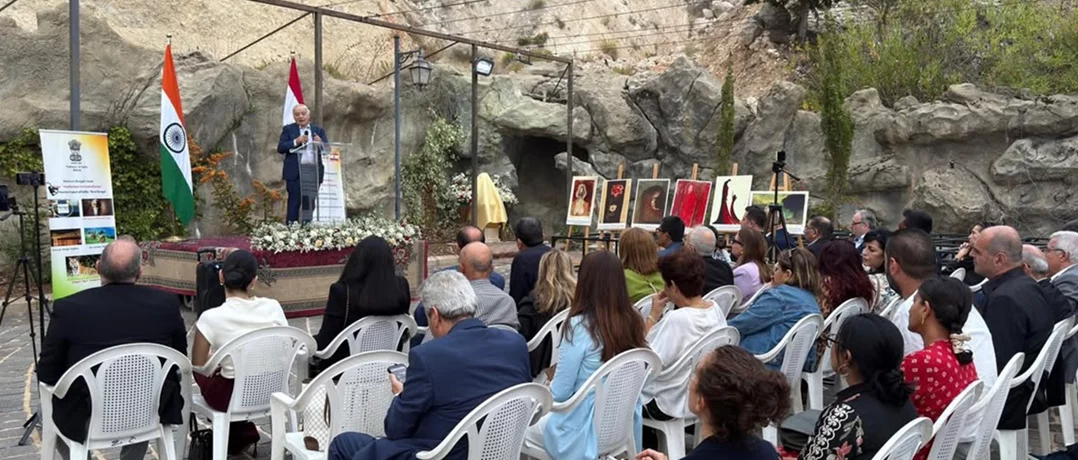Tagore’s sculpture in Bsharri honors his timeless bond with Gibran and their shared message of love, freedom, and human dignity.
Tagore meets Gibran: A celebration of two visionaries in Bsharri
Tagore meets Gibran: A celebration of two visionaries in Bsharri


Under the patronage of Minister of Culture Ghassan Salamé, the Gibran National Committee inaugurated the first sculpture in the “Garden of the Greats,” a tribute to Rabindranath Tagore, the Indian poet of nature, freedom, and the human spirit. The ceremony, held at Mary Haskell Square in Bsharri, gathered diplomats, cultural figures, and public officials in homage to a dialogue of civilizations that continues to resonate across generations.
Some encounters are too profound to be confined by geography. When Khalil Gibran met Rabindranath Tagore in New York in 1921, it was more than the meeting of two poets; it was the recognition of two spirits speaking a common language, though born of distant lands. Gibran, son of Lebanon’s rugged valleys, and Tagore, voice of India’s vast fields, shared the same vocation to remind humanity of its boundless capacity for love, freedom, and dignity.
Gibran later painted Tagore’s portrait, inscribing beneath its words of reverence: “I saw him, and I felt he was the God of love, come to bless the earth with his words.” In this single line rests the essence of their bond an acknowledgment that poetry and philosophy transcend language and culture, uniting instead through the universal pulse of the human spirit.
Tagore, the first non-European Nobel laureate in literature, and Gibran, whose Prophet has traveled into dozens of languages, both saw their works carried across oceans and generations. What joined them was not circumstance or style, but a conviction that beauty, freedom, and dignity are values worth safeguarding across civilizations and across time.
As Dr. Fadi Rahme, president of the Gibran Committee, told The Beiruter:
Both Tagore and Gibran were citizens of the world long before the term became fashionable. Defending these values today could help secure a better future for humanity. They championed love, dialogue between civilizations, and human dignity values we must continue to protect
In celebrating Tagore alongside Gibran, Bsharri is not merely honoring two men of letters it is affirming the timeless relevance of their vision. Both believed that cultures, however distant, could meet on the common ground of beauty, justice, and love. Their encounter a century ago reminds us that the true measure of civilization lies not in power or possession, but in the depth of its humanity. Today, as the Garden of the Greats takes root, it carries forward that legacy: a quiet yet enduring call for dialogue, dignity, and the universal kinship of the human spirit.


